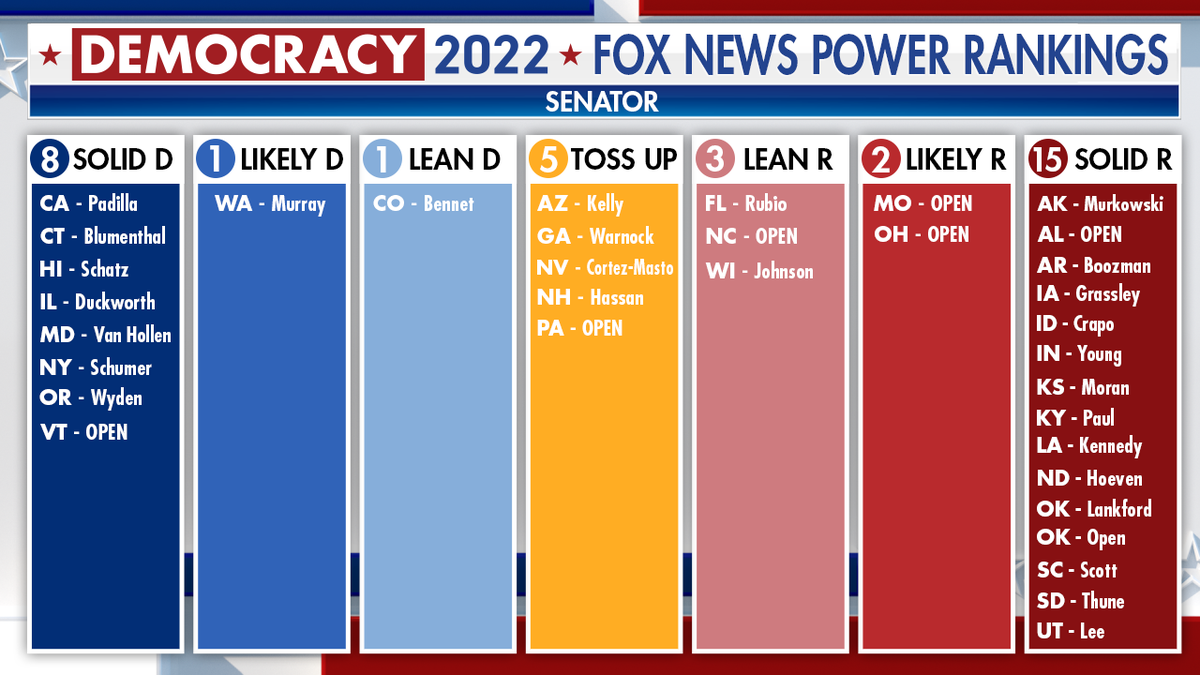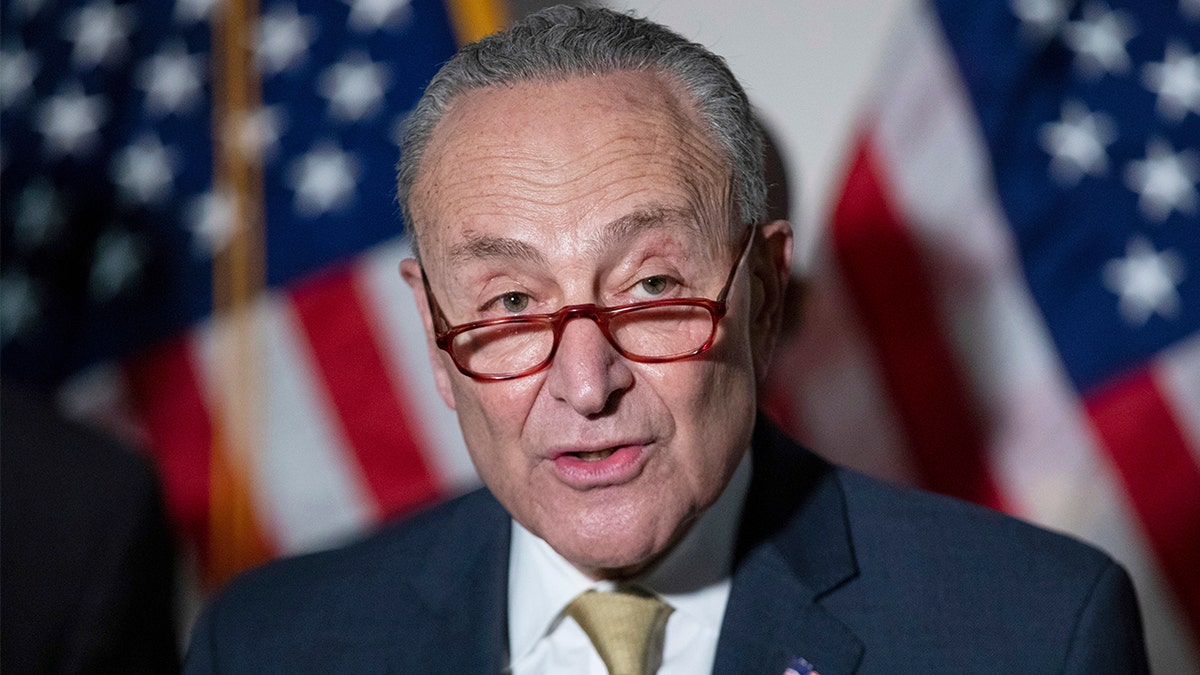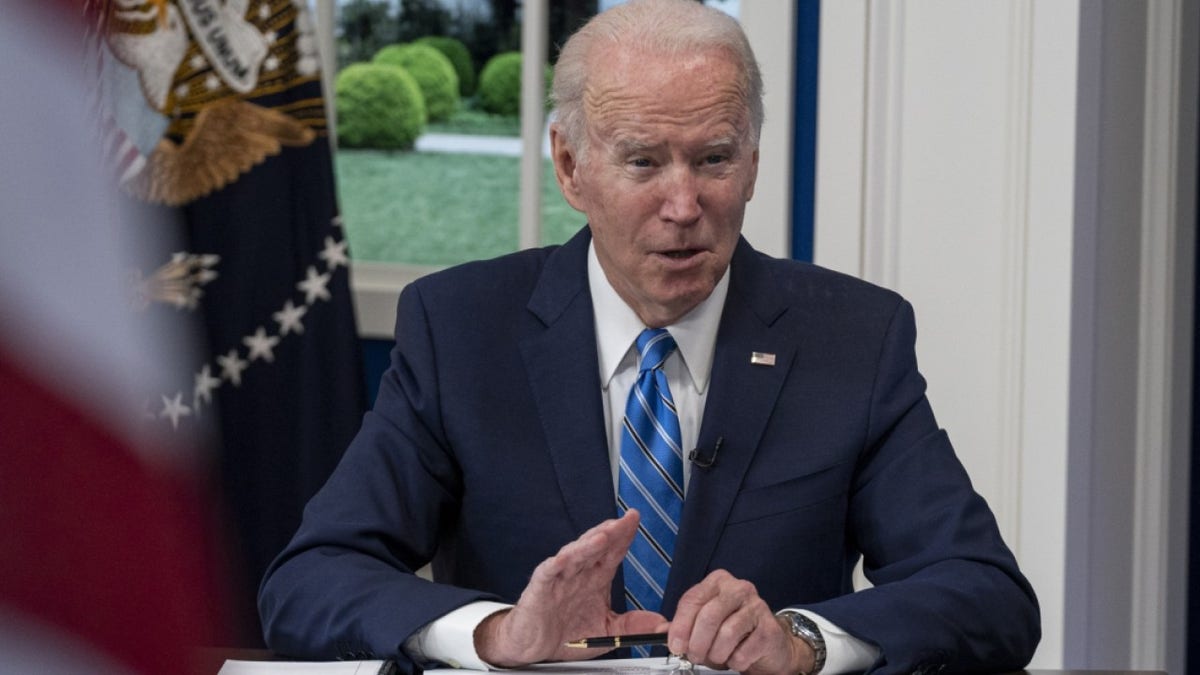Shannon Bream on the role of the Supreme Court in our democracy
Fox News host and chief legal correspondent Shannon Bream takes viewers to 'law school' by breaking down the 'proper' role of the judiciary amid the court's recent decision on Roe v. Wade on 'Sunday Night in America with Trey Gowdy.'
In raw numbers, President Joe Biden and Senate Majority Chuck Schumer are outpacing their GOP predecessors in the race to fill judicial vacancies.
The Democratic duo worked together to confirm 69 judges over approximately 18 months. Former President Donald Trump and current Senate Minority Leader Mitch McConnell, R-Ky., confirmed 42 in the same time period of Trump's term, according to numbers from the conservative Heritage Foundation.
However, with key midterm elections approaching and Democrats hanging onto their Senate majority by a thread, Schumer, D-N.Y., and Biden may have their momentum stunted early.
"McConnell has as recently as a week ago said if Republicans take the majority he is going to move the nominees much less quickly," University of Richmond Law School Williams Chair Carl Tobias told Fox News Digital. "The best precedent is the last two years of Obama ... very few nominees went through when Republicans captured the majority."

Fox News' Democracy 2022 Senator Power Rankings show five toss-up seats, four of which are held by Democrats. (FOX News)
"Democrats, including in the White House and the Senate, are painfully aware of the possibility that they could lose the majority in the midterms," Tobias also said.
Underscoring how tenuous the Democrats' hold on power is, Fox News' Democracy 2022 Power Rankings rate four Senate seats held by Democrats as toss-ups, compared to one for Republicans. All Republicans need to do is net one seat, and they will control the Senate.
Against that backdrop, a spokesperson for Judiciary Committee Chairman Dick Durbin, D-Ill., told Fox News Digital Democrats plan to keep the judicial conveyer belt churning.
"Thanks to the tireless work of Chair Durbin, the Judiciary Committee, and Senate Democrats, President Biden has had more total circuit and district court nominees confirmed through this point in his term than any president since John F. Kennedy," the spokesperson said.

Sen. Dick Durbin, D-Ill., chairman of the Senate Judiciary Committee, speaks during a confirmation hearing for Supreme Court nominee Ketanji Brown Jackson before the Senate Judiciary Committee on Capitol Hill in Washington March 22, 2022. (AP Photo/Andrew Harnik)
"Seventeen judicial nominees are on the executive calendar, and three are awaiting a discharge vote," the spokesperson continued. "And more nominees will continue to move through the committee quickly — as has been the case since Chair Durbin took the gavel. When the Senate returns, Chair Durbin would like to see these pending nominees confirmed swiftly and will continue to work with the leader to find appropriate floor time."
The White House and representatives for Schumer did not respond to requests for comment for this story. A spokesperson for McConnell declined to comment.
Tough calendar
One major hurdle Democrats face in speeding up their confirmations is the spotty Senate schedule in the second half of the year.
Senators return Monday from their Independence Day recess, only to leave town again in just a few weeks for the August recess. That may be shortened some, but it's unlikely to be completely eliminated, even with Democrats working on other major legislative priorities concurrently with their judicial nominations.

Senate Majority Leader Chuck Schumer, D-N.Y., may face tough decisions on when to keep the Senate in session during the August recess and campaign season as Democrats try to stack judicial confirmations. (AP Photo/Amanda Andrade-Rhoades)
ABORTION DECISION DRAFT LEAKER'S IDENTITY REMAINS A MYSTERY AS SUPREME COURT ENDS ITS TERM
Then senators will return in September for a work period that will be interrupted yet again by campaign season. The lame duck session after the November elections will have interruptions for Thanksgiving and Christmas. That's not to mention necessary government funding legislation, the National Defense Authorization Act and other priorities that may suck up the Senate's time.
"And then there are questions about just how many hearings you can pack into that period of time with the calendar working somewhat against Democrats," Tobias said.
Short circuit
The one thing Schumer and Biden trail their Republican predecessors in is appeals court nominees confirmed. According to the tally from The Heritage Foundation, Biden's confirmed 16 judges for the federal circuit courts of appeals, compared to 19 for Trump at this point in his term.
Tobias expects Democrats to try to close that gap in the coming months.
"I think they'll be focused like a laser on the appellate court vacancies because everybody, Republicans and Democrats acknowledge, and Trump showed us – and McConnell – that those are more important," he said.
SUPREME COURT OVERTURNS ROE V. WADE IN LANDMARK ABORTION DECISION
Tobias said there are several circuit court nominees on the Senate floor whom he expects to be confirmed in short order. Then there's another group of nominees who had recent hearings that may be confirmed by the end of the month too.

The Senate has confirmed nearly 70 of President Biden's nominees for federal courts, but that pace may come to a screeching halt if Republicans take the Senate. (Ken Cedeno/UPI/Bloomberg via Getty Images)
But other judges were recently nominated and haven't yet had a hearing. And judges hoping for a circuit court nod who haven't been named yet may never make it to the bench if Republicans win in November.
"The White House is way overdue on a package of nominees, or packages of nominees," Tobias said. "If they're not nominated by now it could be difficult to have them confirmed."
GOP resistance
Schumer and Biden's effort to confirm as many nominees as possible comes amid unprecedented resistance from Senate Republicans, a move that follows similar resistance from Democrats to Trump's picks.
By this time in his term, the average number of "no" votes on judicial nominees from former President Donald Trump was 21.5, according to the Heritage Foundation. That number under Biden has skyrocketed to 39.6.
Nominees from former Presidents Barack Obama and George W. Bush averaged 3.7 "no" votes and 0.4 "no" votes, respectively," according to Heritage.
CLICK HERE TO GET THE FOX NEWS APP
Republicans, so far this term, have forced Democrats to call cloture votes on every single one of Biden's 69 nominees. Democrats, at this point in Trump's term, only forced cloture votes on two of Trump's 42 appointments, though they later made that standard practice for nearly all of Trump's picks.
But in a world in which the judicial filibuster is a thing of the past, Republicans' nearly uniform resistance to Biden's nominees isn't truly slowing Senate Democrats down. Nevertheless, they'll have their work cut out for them to catch Trump's 234 total federal judges appointed during his term. The former president picked up his pace during his final two years.
"Trump came into office, didn't know a lot about public service … so it's not surprising that he had a somewhat slower start," Tobias said. "Biden … had been chair of Judiciary, processed six or seven Supreme Court nominees … So he was much more familiar with it, so you would expect him to move much more quickly at the beginning."






